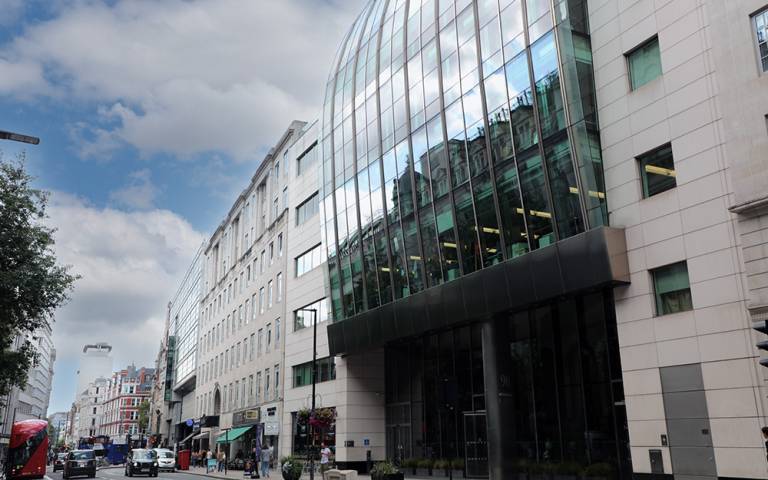
The full scientific content of MedICSS 2023, including lectures and projects, will take in person, at the UCL Centre for Medical Image Computing (CMIC) 90 High Holborn, London WC1V 6LJ. The venue is located close to Holborn Tube station and is in the heart of Central London, close to theatres and many museums and other areas of interest.
An online package option will be available for access to the recorded lectures only (for a limited time).
We have planned complementary in-person social events for delegates who register to attend in person, including a research poster session.
University College London (UCL) is London’s leading multidisciplinary university and was voted the 9th best university in the world in the 2024 QS World University Rankings.
Founded in 1826, UCL was the first university in England to be entirely secular, admitting students regardless of their religion, and admitting women on equal terms with men. UCL's main campus is located in the Bloomsbury area of central London, with several institutes and teaching hospitals elsewhere in central London. UCL is organised into 11 constituent faculties, within which there are over 100 departments, institutes and research centres. UCL has around 42,000 students and 13,000 staff (including around 7,100 academic staff and 840 professors). Measured by the number of students, it is both the largest higher education institution in London and the largest postgraduate institution in the UK. UCL is part of three of the 11 biomedical research centres established by the NHS in England and is a founding member of the Francis Crick Institute and UCL Partners, the world's largest academic health science centre.
The Centre for Medical Image Computing (CMIC) combines excellence in medical imaging sciences with innovative computational methodology with a focus on deep learning. Our research finds application in biomedical research and in healthcare with a particular emphasis on translating new computational methods in imaging sciences to the clinic. Research topics include detailed structural and functional analysis in neurosciences, image analysis in drug discovery, imaging in cardiology and respiratory disease and imaging in oncology. The Centre, based in UCL Engineering, has very close links with the Clinical Sciences, Life Sciences and associated Clinical Institutes, particularly the Institute of Neurology and the Institute of Child Health. As part of UCL’s coordinated activity in medical and biomedical imaging sciences we work closely with the Centre for Advanced Biomedical Imaging (CABI) for preclinical and experimental imaging, Academic Radiology, Surgery, The Dementia Research Centre, The Centre for Neuroimaging Techniques (CNT), the London Centre for Nanotechnology and the Centre for Healthcare Informatics and Medical Education (CHIME).
Accommodation
Summer | UCL Accommodation - UCL – University College London
 Close
Close

